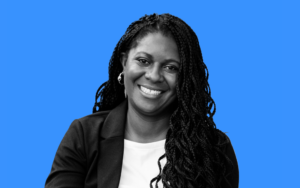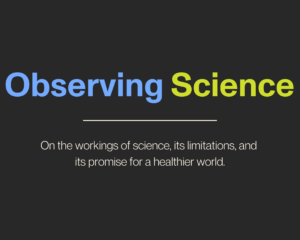Making Sense of Health Information
Health literacy is necessary to make sense of the wide array of health information that is available today, especially for middle-aged and older people.

Read Time: 3 minutes
Published:
We all ask health-related questions. What kind of exercise should I be doing at my age? What should I eat and how much? My doctor told me that I have high blood pressure, what should I do? Should my partner change his or her medication to manage their diabetes better? We need health information throughout the life course, but health information is particularly important during middle and later life—when good health can no longer be taken for granted.
Today, health information is readily available from a wide array of sources such as newspapers, books, magazines, internet, television, etc. Many people also get health information from health professionals, family, and friends. This wonderful variety of health information sources helps you make more optimal health and medical decisions, right?
The problem is that not all available health information is scientifically supported and accurately presented. Also, not everyone knows how or where to locate, evaluate, and understand available information.
Health literacy—“the degree to which individuals have the capacity to obtain, process, and understand basic health information and services needed to make appropriate health decisions”—is an essential skill for successfully finding health information. Basic skills such as literacy and numeracy are the foundation for health literacy. Aging is known to be related to lower literacy and numeracy proficiency in general. Only about one in ten American adults have proficient literacy and numeracy skills. To better understand the relationships between literacy, numeracy, and health information seeking among Americans age 45 and older, we analyzed data from the 2012/2014 Program for International Assessment of Adult Competencies, which provides nationally representative data on literacy and numeracy. We found that literacy and numeracy are differentially related to the use of information sources.
Aging is known to be related to lower literacy and numeracy proficiency in general. Only about one in ten American adults have proficient literacy and numeracy skills.
People with poorer literacy use health professionals and the internet as health information sources less often than those with proficient literacy. Literacy is important in learning new medical terms, reading instructions for medical treatment, and handling large amounts of text information online. People with poorer literacy skills may face health information disadvantages because they have a hard time reading text-based health information (e.g., books, internet) and communicating with health professionals.
People with poor numeracy skills use books, newspapers, magazines, and TV as health information sources more often than those with proficient numeracy skills. We can find diverse health information including commercial health products and public health information from government agencies. Questionable health products are routinely advertised in “health” magazines and TV commercials. Numeracy skills are necessary for evaluating the risks and benefits of health-related decisions.
Simply put, people with proficient literacy and numeracy skills have access to more health information sources such as health professionals and the internet. They also tend to evaluate risks and benefits based on multiple sources more accurately. Accurate and up-to-date information is critical to improving population health, but, at the same time, health information disparities may exacerbate existing health disparities. Policymakers, community leaders, educators, and other public health stakeholders need to be aware of the importance of basic skills. Improving literacy and numeracy enables middle-aged and older people to seek accurate health information and empowers them to engage in learning activities for many other purposes.
The author would like to thank the co-authors of the original research study: Anthony Bardo (University of Kentucky), Darren Liu (Des Moines University), and Phyllis Cummins (Miami University).
Feature image: Aaron Hall, Doesn’t matter which doctor, used under CC BY-SA 2.0



